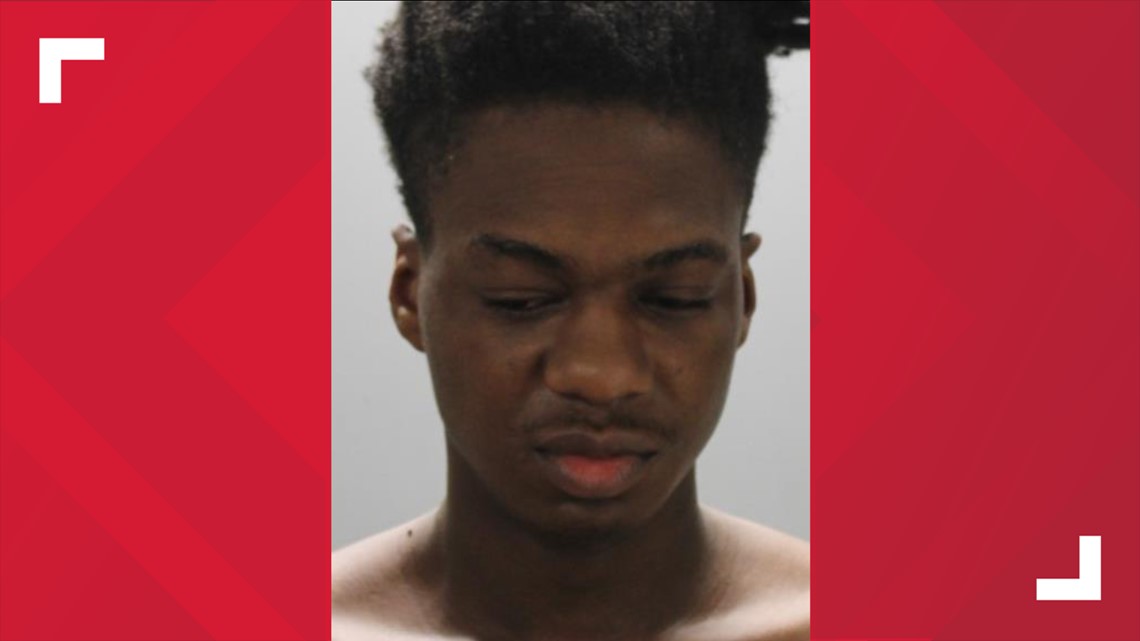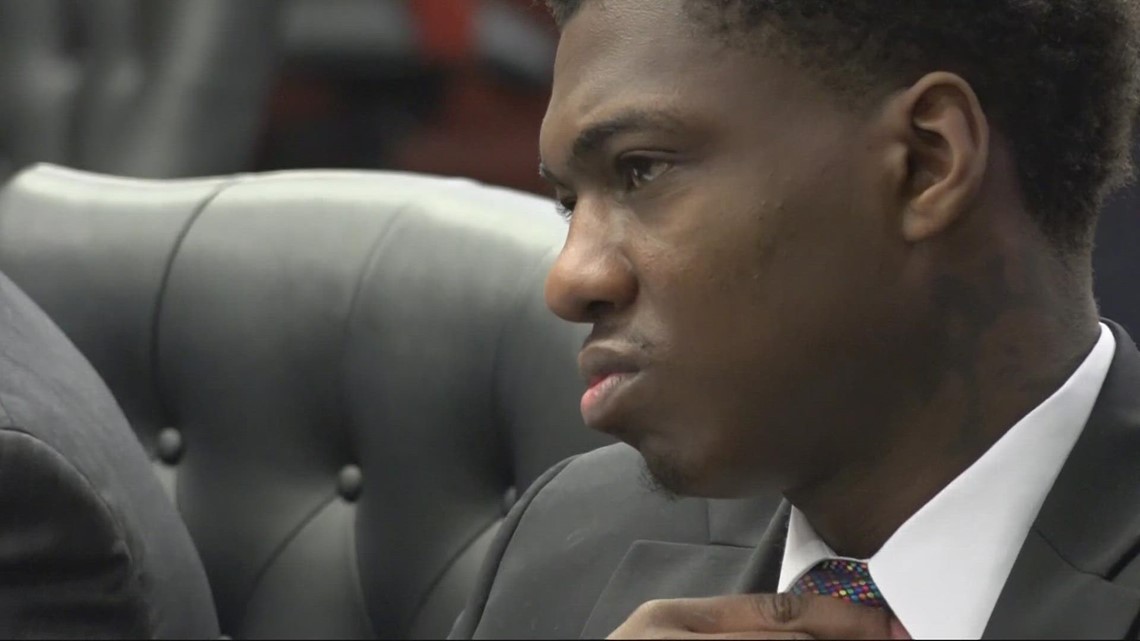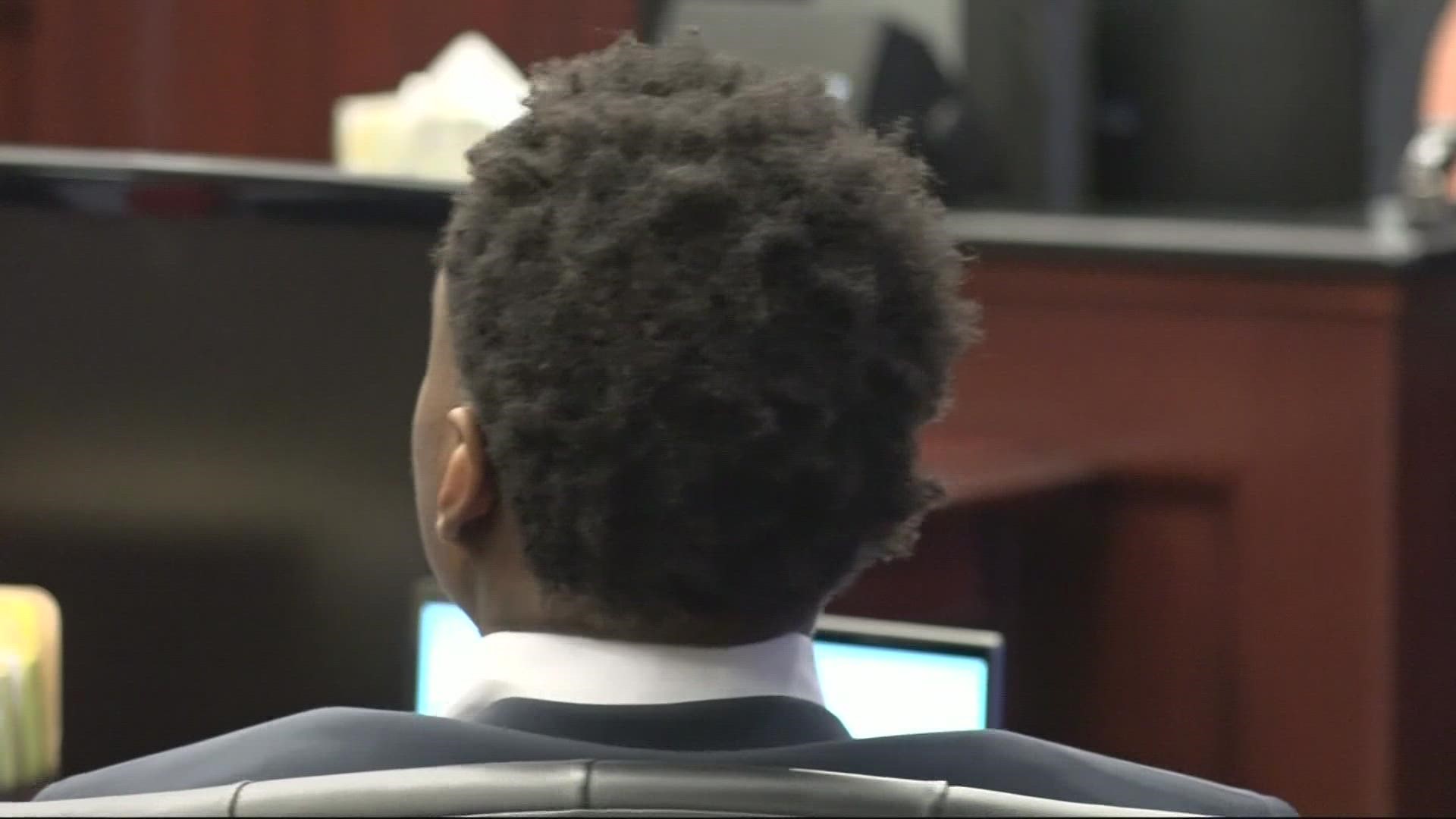JACKSONVILLE, Fla. — Late in the second day of Noah Williams' trial, his attorneys asked Duval County Judge Jeb Branhem to acquit him, citing lack of evidence.
Williams, whose rap name is Spinabenz, is best known for his viral song 'Who I Smoke.' He is standing trial for charges of possession of a firearm by a convicted felon. He faces up to 15 years on that charge.
If he is found guilty, the trial will enter a separate sentencing phase to decide if the charges will be enhanced due to Williams' alleged gang ties. (Police reports show that the Jacksonville Sheriff's Office believes him to be a documented member of the violent gang 187 Boys.)
The prosecution's case hinges on the narrative that Williams had his girlfriend purchase a firearm for him. She was the registered owner of a Glock recovered during at traffic stop, where she was driving and Williams was in the passenger seat. The Glock was confiscated, and Williams' DNA was later found on the gun, which the prosecution argues proves it was his gun.
An officer with the Jacksonville Sheriff's Office, Officer Justin Peppers, testified that he noticed Williams' shirt pulled up at the traffic stop, and he believed that Williams had pulled the gun from his waistband. Assistant State Attorney Lauren Anderson says this is an integral part of the prosecution's argument.
The past two days in court have seen a litany of police officers and Jacksonville Sheriff's Office employees, as well as an expert witness from the Florida Department of Law Enforcement, which helped process the Glock for DNA evidence. Witnesses have testified that the vehicle and the Glock were not processed for fingerprints during the traffic stop. Witnesses also testified that 12% of the DNA on the Glock belonged to Williams, which his attorneys agree with. This technically makes him a "minor contributor," although it takes a significant amount of DNA to create that figure.
Following this testimony, David Bigney, one of Williams' attorneys, petitioned Judge Jeb Branhem to grant a motion of acquittal in the case. He argued that no one has been able to specify at what point Williams' DNA got on the gun, meaning it could not be proven that he had taken the gun out of his waistband that night.
"No witness has seen my client with a firearm," Bigney said. During opening statements, he had promised the jurors that they would not hear from any witnesses who could testify they had seen Williams with the firearm, and so far, that has held true.
Judge Branhem denied the request. Court will resume late Tuesday as the defense plans to call its last witness. Closing arguments and a verdict are expected Wednesday.





